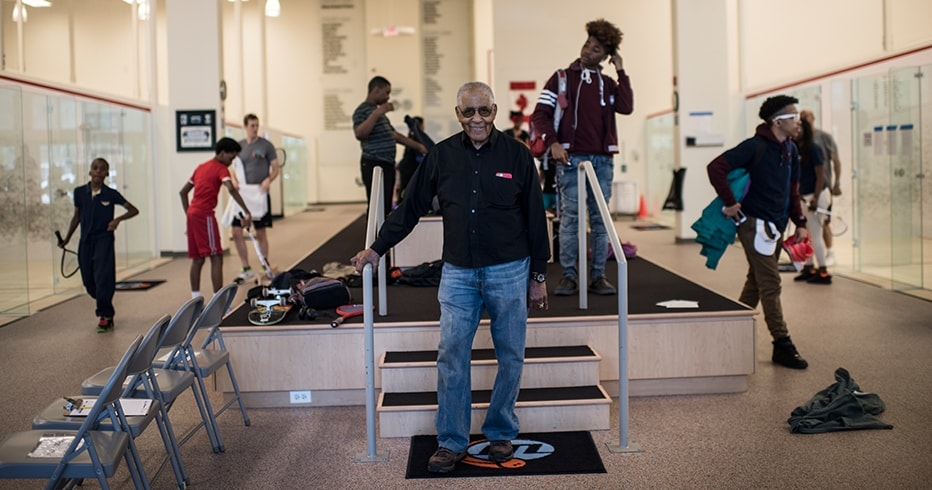Secret? Acts of Kindness.
Washington: Secret to former cop’s success? Acts of kindness.
Back in the day, a black cop on Chicago’s South Side had to be badder than bad.
“They would go find the toughest, meanest black man and make him a police officer,” Rudy Nimocks remembers.
When Nimocks first stepped out on the beat in 1959, he says, “I didn’t take no —- off of nobody. I put you in jail so fast it (would) make your head spin.”
Nimocks’ history offers lessons at a time when the Chicago Police Department is the target of angry excoriation and hopeful reform.
He’s one of 24 working people featured in “Working in America,” a new exhibit of portraits by Lynsey Addario, a Pulitzer Prize-winning photographer. The innovative show includes interviews with working people around the nation.
The exhibit, opening Wednesday at the Harold Washington Library Center, “aims to reveal the centrality of work in all our lives and the role of work in how we see ourselves, others and our communities,” says Jane M. Saks, the show’s creator and artistic director of Project&, a Chicago non-profit.
It was inspired by “Working,” the 1974 oral history by Studs Terkel, the great Chicagoan who sought the extraordinary in the ordinary.
Nimocks, 87, rose from that foot patrol, to the ranks of detective, head of the city’s homicide division, to deputy superintendent. He retired from the department in 1989, then ran the University of Chicago’s Police Department for 20 years. He now serves as the university’s Director of Community Partnerships.
Nimocks grew up around 39th and South Park (now South King Drive) in the 1940s. He “ran around with some bad guys,” he told me last week in an interview at his Woodlawn apartment.
He even founded his own gang, the 13 Cats. “We had jackets, put our names on them and I had ‘president and war council’ on mine.”
But policing was his dream. He loved walking the beat. He reveled in chasing the bad guys through alleys, busting them in the corridors of Robert Taylor Homes. Detective Nimocks relished solving the “unsolvables,” cold cases left for dead.
A stack of photos, letters, and commendations acclaiming his service sat high on the living room table.
As he watched the exponential growth of poverty and segregation in his community, his view of policing evolved.
“Going into these households it finally struck me, you know, every time you go into a home it’s the same thing. No father in the home, kids out of school, kids gang banging, and kids going in and out of jail…”
All trapped in generations of poverty, racial and economic segregation, a racist criminal justice system. “I say, ‘well, wait a minute. Am I making a contribution to this deadly system that these people are in?’ ”
He pursued his own brand of “community policing,” long before it became a trend. He and his partner would arrest a young gangbanger, then return to drive an impoverished mother to his court date. Get her some groceries. Buy the kids shoes.
“Partially, for selfish reasons,” he explained. “Because I know (that) everybody that I helped, I could go and ask them to help me.” Help him identify a perpetrator, turn up crucial evidence.
“And invariably they did. So that made me a better detective.”
It’s much tougher today. The trust is gone. Officers are laying back. The police department is riven by a legacy of unheeded misconduct. The city is talking about hiring hundreds of new police officers. How should they approach their work?
Young cops, he replied, must know there is more to police work than a uniform, gun, and car and “absolute authority.”
“You have to realize if you want people to trust you and feel like you are a part of their community, you have to earn it first,” Nimocks advised.
“You have to get out there. Talk to them, do things with them. Offer your services in any way you can. You have to earn your credibility.”
Email: lauraswashington@aol.com
Follow Laura Washington on Twitter: @MediaDervish
– The Chicago Sun Times / [Original Article Here]
